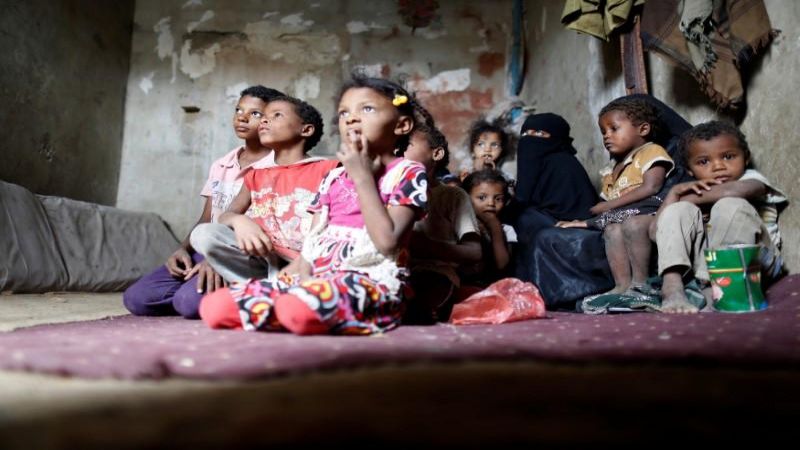
By Alexander Matheou
When you drive through Yemen’s capital, Sana’a, you could easily miss the fact that you are in the worst humanitarian crisis in the world. You can see that many of the shops and businesses are shut, that cars are queuing for petrol, and that buildings are dilapidated. But you won’t see devastation on the scale of Homs or Beira. The crisis in Yemen is harder to see. It is inside homes and hospitals. It is in parts of the country that are difficult, almost impossible, to visit. It is in people’s eyes and in the stories that they tell of struggling to maintain their everyday lives.
These are stories about impossible choices: whether to use meager funds to buy food or medicine, whether to stay put or migrate; stories about fear: of being close to an airstrike, of falling sick from the untreated water; and stories about loss: of loved ones, of friends, of health, work, and hope. Like the crisis itself, the mental health impact is hard to see at a glance. A woman I spoke to shared how she had lost all her hair and stayed indoors for two years after the tension became too much to bear. A Yemeni woman in Sana’a told us, “The dead are the lucky ones. It is what awaits us until we die that we must fear.”
Yemen is back in the news again, amid reported efforts to enforce a ceasefire. Even for Yemen experts, the consequences of those events on the humanitarian crisis are hard to predict. In the face of such uncertainty, it is easy to feel helpless but there are actions that must be taken to help alleviate the crisis.
First, we must continue to fund humanitarian assistance in Yemen and advocate for other governments to do the same. The cost of relief operations in Yemen is extraordinarily high, 80% of the population are in need of humanitarian assistance, combined with the difficulties of importation and onward delivery. But according to the United Nations around 14 million people are at risk of starvation and lives depend on funding for the humanitarian response. There needs to be a sustained commitment from multiple sources so that aid can reach those most in need. Humanitarian appeals are not a long-term solution but for now, they are a lifeline.
Second, we must support the import of essential items that maintain food security and health care in Yemen. Critical to this is the port of Hodeida, over 70% of imports into Yemen come through the port, yet at times it has been functioning at 47% decreased capacity. This is having a crippling effect on the ability of essential supplies, such as food and medicine, to enter the country. Diplomatic and practical efforts to allow the port to function for both humanitarian and commercial goods is critical.
Third, work with all parties to promote safe access for neutral and impartial humanitarian organizations such as the International Committee of the Red Cross and the Yemen Red Crescent Society. Today, 6.5 million people in need of assistance live in hard to reach areas and aid agencies are prevented from accessing these communities due to the lack of security guarantees. Since the escalation of the conflict in 2015, 11 ICRC and Yemen Red Crescent Society staff and volunteers have been killed. Yemen is one of the ICRC’s largest operations, yet if humanitarian activities were safeguarded, the entire Red Cross Red Crescent Movement’s response could reach so many more people in need.
Fourth, work with all parties to encourage respect for international humanitarian law, with an emphasis on the principles of proportionality and precaution. We are particularly concerned about the impact of restrictions on imports — especially food items and medicines — and civilian casualties. Parties to the conflict must respect the rules of war and have an obligation to take all precautions to minimize the impact of the conflict on civilians.
Fifth, do everything possible to ensure that salaries of public sector workers are paid so that essential services can continue to run. Much of the suffering in Yemen results from a collapse of purchasing power, which is a consequence of a weakening private sector and an inability to pay the salaries of civil servants. Doctors, nurses, water engineers, and teachers understandably cease to work after extended periods without any compensation. This then affects essential maintenance work, closes services, and incentivizes a war economy. Paying salaries is an essential part of keeping services functioning in Yemen today.
Sixth, keep an open and active dialogue with all parties and encourage the parties to commit to the agreement reached in Stockholm during the peace talks consultations. The conflict in Yemen is multifaceted and characterized by deep mistrust. Decisions around safe humanitarian access, aid pipelines, and respect for international humanitarian alw, need to be negotiated with multiple parties. To facilitate this, diplomatic channels need to remain open, and humanitarian financing and humanitarian action needs to be neutral and impartial.
After my return from Sana’a, I debriefed with the All-Party Parliamentary Group for Yemen and shared these six messages. Virtually everyone in Yemen has been affected by this devastating armed conflict, the past four years have left the population utterly exhausted. These six actions can offer some hope towards helping to alleviate the strain.
Source: Devex, Edited by Website Team